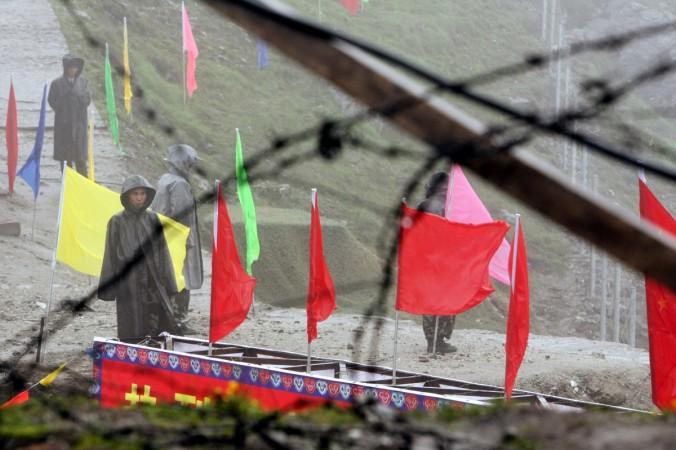The Indo-China border issue in Sikkim has been going on for the past 40 days and while the Chinese media has been taking an aggressive stand and slamming India for not withdrawing its troops and "provoking" China, experts have warned that the tension may have a huge impact on Beijing's trade and infrastructure plan, the Belt and Road Initiative.
Macau-based military expert Antony Wong Dong has said that by being adamant, China may just make New Delhi its enemy, which in turn will hit the country's trade plans. "China is playing psychological warfare ... but it should realise that even if it defeated India in a war on land, it would be impossible for the PLA navy to break India's maritime containment," the South China Morning Post quoted Wong as saying.
Almost 80 percent of China's oil imports are carried out via the Indian Ocean or the Strait of Malacca between the Malay Peninsula and Sumatra.
"Unlike Southeast Asian countries, India has never succumbed to China's 'carrot and stick' strategies," Wong added. He also explained that India's location works in its favour when it comes to "China's energy lifeline and the 'Belt and Road Initiative'" and rubbing the neighbouring country the wrong way will yield no benefit to Beijing. In fact, Wong believes that China's aggressive stand will "only push it into the rival camp, which [Beijing believes] is scheming to contain China by blocking the Malacca Strait and the Indian Ocean."
Supporting Wong's observations, Sun Shihai, adviser to the Chinese Association for South Asian Studies, said that the ongoing stand-off could create major tensions between the countries and "fuel" the existing "anti-Chinese sentiment in India."
"Beijing has been trying to lure India to join 'Belt and Road' projects because both countries stand to benefit from them strategically and economically. [But] The latest tensions have soured bilateral ties and the growing mistrust will only make New Delhi more reluctant to make a decision," Shihai added.

Meanwhile, as the border row in Sikkim over the Doklam plateau refuses to die down, its effects have now begun to show in the Sino-India trade in Himachal Pradesh. The trade usually starts at the end of June, but it is yet to begin this year even though traders have been given out passes, which allows them to travel to Shipki, a village in China-controlled Tibetan Autonomous Region, to carry out business.
Some of the products sold at Shipki are blankets, clothes, coffee, tea, barley, rice, flour, dry fruit, dried and fresh vegetables, vegetable oil, jaggery and tobacco.
"Passes have been allotted to some traders but we are yet to receive directions on allowing them to carry the cross-border trade," Hindustan Times quoted Rajiv Verma, tehsildhar of Pooh, a saying.
Traders too are worried that their business is going to take a hit due to the Sikkim standoff. "Traders are waiting for the government's nod. There is no clarity so far," Hishey Negi, president of Kinnaur Indo-China Trade Association, added.
"We don't want to take any risk. Traders and mule owners are apprehensive to travel to the zero point midst the standoff at Doklam," added Ishwar Negi, a resident of Tashi Gang village along the Sino-India border.

















